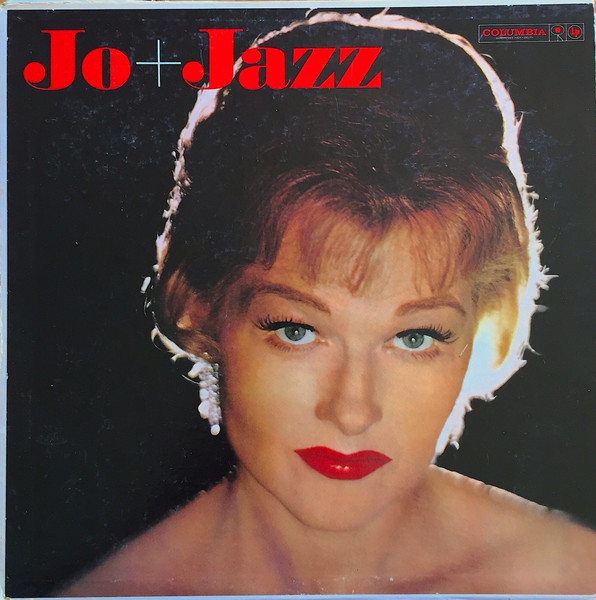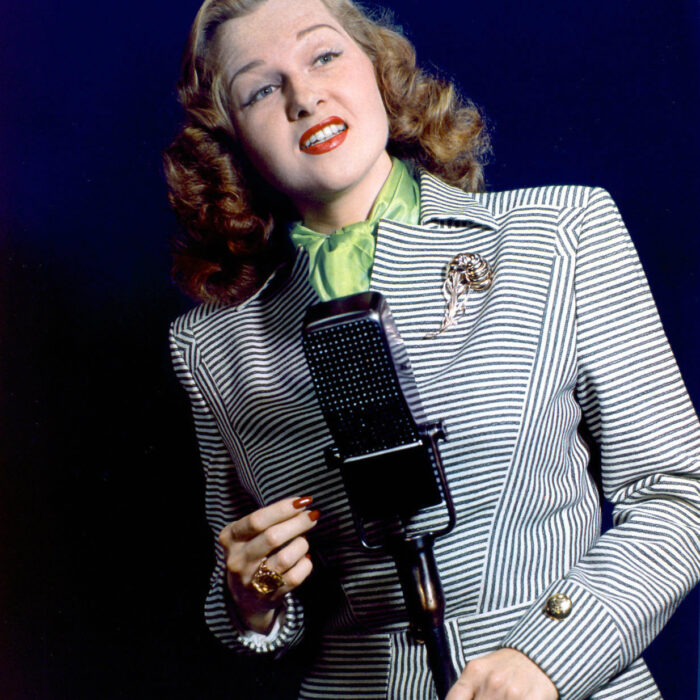One of the most technically gifted and popular vocalists of the immediate postwar period, Jo Stafford effortlessly walked the line between breezy pop and the more serious art of post-big-band jazz singing. With the help of her husband, top-flight arranger and Capitol A&R director Paul Weston, Stafford recorded throughout the ’40s and ’50s for Capitol and Columbia. She also contributed (with Weston) to one of the best pop novelty acts of the period, a humorously inept and off-key satire that saw the couple billed as Jonathan & Darlene Edwards.
Born near Fresno, California, Stafford sang from an early age and was classically trained, though she later joined her sisters in a country-tinged act (associated for a time with Joe “Country” Washburne). At the age of just 17, she became the first female voice in the seven-man vocal act known as the Pied Pipers. Soon after the group joined the Tommy Dorsey Orchestra in 1939, however, it was pruned to a quartet (which also included Stafford’s first husband, co-founder John Huddleston). The group appeared on several of the Dorsey band’s hits of the early ’40s, a few of which paired them with Frank Sinatra. Stafford gained her first solo spots on a pair of Dorsey band hits, “Yes, Indeed!” and “Manhattan Serenade.” She finally left the Pied Pipers for a solo contract in 1944 (she was replaced by June Hutton), though the group provided backup for many of her initial solo hits.
Not only signed to Capitol but able to preview hit songs as the co-host of label founder Johnny Mercer’s radio program, Stafford hit the charts with the mid-’40s songs “Long Ago (And Far Away),” “I Love You,” and “Candy.” The latter, a duet with Mercer and the Pied Pipers, became her first number one. In 1948, her duet with Gordon MacRae on “My Darling, My Darling” became her second. She later moved to Columbia and recorded the two biggest hits of her career, 1952’s “You Belong to Me” and 1954’s “Make Love to Me.” Stafford gained her own television program during the mid-’50s, and also recorded the first LP by Jonathan & Darlene Edwards, American Popular Songs. (It wasn’t the first time Stafford had used a pseudonym, however; in 1947, she billed herself as Cinderella G. Stump to record a cover of the cornpone single “Temptation [Tim-Tay-Shun].”) Though she slipped from the charts in the late ’50s and retired from live performance, Stafford continued to record for many years and issued the LP Getting Sentimental Over Tommy Dorsey on Reprise in 1963. She also founded Corinthian Records with Weston to reissue the couple’s various recordings.
Appetizers


